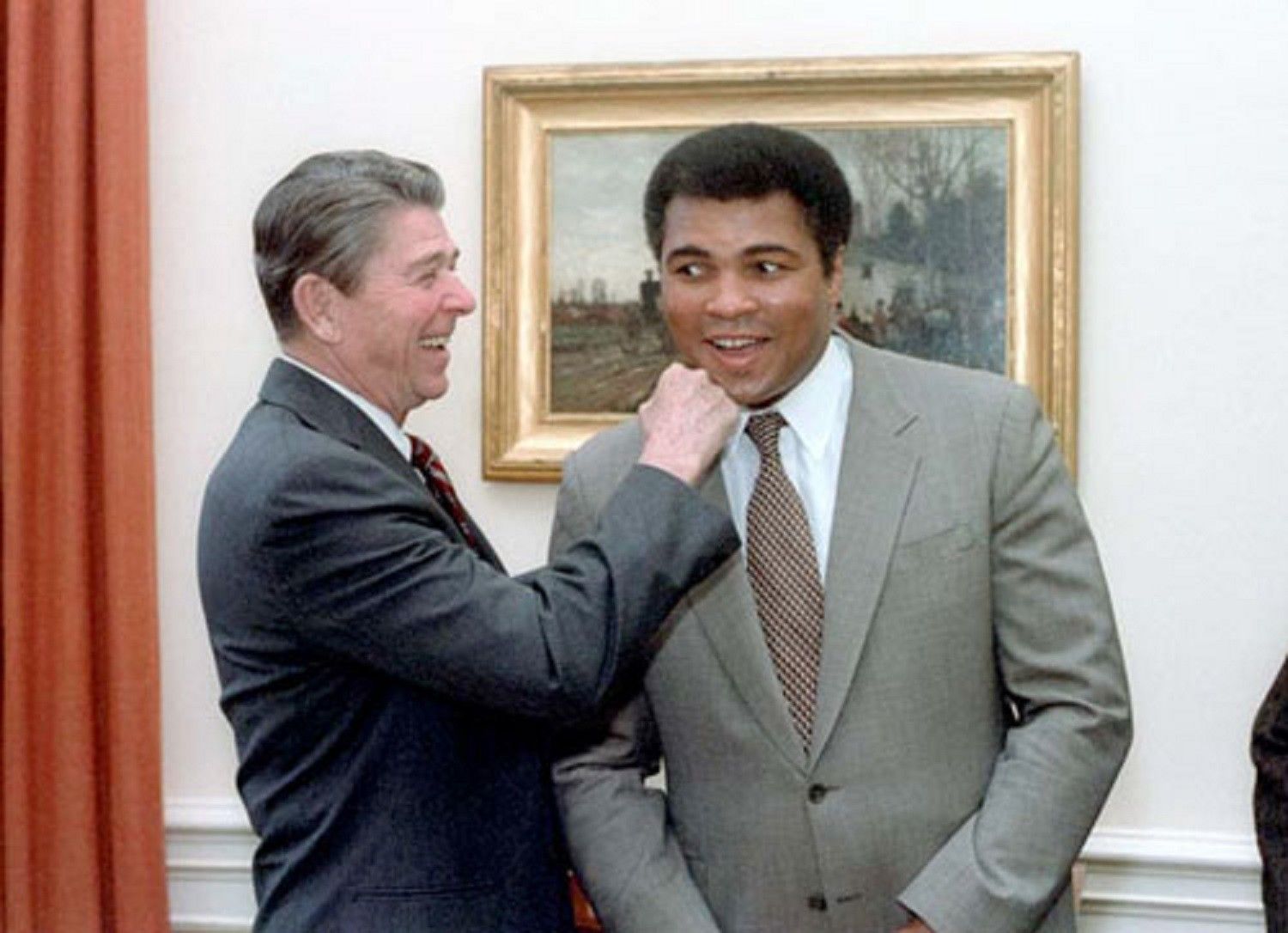Sports’ Role in Politics

While some argue that the world of sports is an escape from politics, athletes throughout history have been vocal about their political ideologies and preferred representatives. Beyond simply athletes involved in politics, I want to address domestic sports leagues and athletes in the context of American politics.
Anyone who’s watched a game recently could tell you about the influx of political ads for Vice President Kamala Harris or former President Donald Trump. Both candidates have been racking up support from athletes across all sports, and certain sports leagues’ fans lean in different directions on the political spectrum. Despite the perceived recency of American athletes’ involvement in politics, sports have played a significant role in politics for quite some time.
The great Muhammad Ali was a pioneer for athletes to use their platform to talk about politics. His protest against the Vietnam War was a crucial moment in his career, as he was banned from boxing for three and a half years during the prime of his athletic prowess. He also cared deeply for the Civil Rights Movement, working to abolish racial segregation. This paved the way for many other athletes to discuss political and contemporary issues of their times.
This brings us to more modern times for sports. Not only do athletes make their political beliefs known, but politicians have been actively seeking out athletes to promote their messages. From the NFL to the NBA, Harris and Trump have found their believers in the athletes and fans alike.
Trump’s supporters have been relatively spread out across the sports realm, but many prominent supporters are from the NFL. The 49ers’ Nick Bosa has been vocal about his support for Donald Trump, while Kansas City Chiefs kicker Harrison Butker publicly endorsed Trump a month ago. NFL Hall of Fame quarterback Brett Favre, former wrestler Hulk Hogan, UFC CEO Dana White, NFL Hall of Fame linebacker Lawrence Taylor, and former Pittsburgh Steelers players Le’Veon Bell and Antonio Brown have come forward in their support for Trump. While Brittany Mahomes, NFL star Patrick Mahomes’ wife, has not publicly endorsed a candidate, she has liked several pro-Trump posts throughout the past two months.
Harris herself has built an athletic coalition, primarily throughout the NBA. Golden State Warriors head coach Steve Kerr and star player Steph Curry have been very forward with their endorsements. Lebron James has recently endorsed Harris for president on X, formerly known as Twitter. After a conversation with Harris, NBA player Jaren Jackson Jr. said he would vote for Kamala.
Moreover, Kamala’s ‘Athletes for Harris’ seems to be an effort to convince fans of more conservative-leaning sports to support her. Some of the group includes LA Lakers legend Magic Johnson, tennis great Billie Jean King, former NBA star Chris Paul, and former WNBA players Dawn Staley and Candace Parker. According to a Sportico poll, most sports fans lean more conservatively. The NBA is one of the more liberal-leaning sports; only 51% of fans identify as conservative. To convince more conservative sports fans from the NFL, Harris has found 15 HOF players to support her, including Calvin ‘Megatron’ Johnson and Emmitt Smith.
Harris has also supported sports like the NFL through her vice-presidential pick, Minnesota Gov. Tim Walz. Throughout her candidacy, she has often referred to him as ‘Coach Walz,’ referring to his time as a football coach. Recently, he went on the streaming platform Twitch to play Madden NFL 25 to connect to NFL fans, specifically young male voters. Creating a coalition of NFL fans would benefit the Harris campaign, as 56% of NFL fans lean conservative. The NFL, however, isn't the most conservative sports league: 57% of MLB fans and 58% of NCAA football fans identify as conservative.
Sports plays a huge role in politics today, with more athletes and fans speaking out for their candidates and pertinent issues. Trump and Harris have shown clear interest in garnering support from sports fans nationwide, with Harris especially trying to reach out to more conservative fans and leagues. While it’s unclear how these coalitions and endorsements from athletes will change the voters’ minds, it is undeniable that these athletes play a crucial role in promoting political change throughout society. The interconnectedness of sports and politics has gone on for over 60 years. Given the most recent widespread outreach from politicians to the athletic world and vice versa, I envision it staying that way for quite some time.